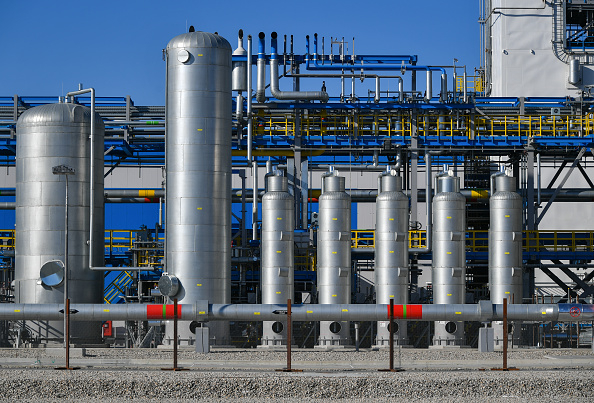Europe finds a way to cut the umbilical cord that binds it to Vladimir Putin’s Russia, above all it finds a way to become less dependent on Russian gas. “Europe must end its Russian energy habit”, or “Europe must end its habit of Russian gas”: the title of the article in the Financial Times has the tones of a harsh reproach.
On the other hand, it was precisely this dependence that prevented Brussels from including the so-called gas banks, primarily Gazprombank and Sberbank, on the list of Russian institutions kicked out of the Swift international payments system. The reason is obvious, given that it is through these banks that EU countries pay for Russian oil and gas imports, which they are in constant and desperate need.
The FT reminds that more than a third of the oil that Europe imports comes from Russia, just as 40% of its gas imports come from Russia.
FT: Merkel’s mistake with nuclear goodbye and ok to Nord Stream 2
The point is that Europe has already “lost the opportunity to reduce this dependence after Putin’s invasion of Ukraine in 2014”, notes the British newspaper, which recalls how, indeed, energy imports from Russia they went up around that time, to replace the lower use of coal and Germany’s decision to say goodbye to nuclear energy “, a decision that was made official in 2011A mistake that the FT editorial board struggles to forgive.
“This mistake – writes the British newspaper – was worse than simple negligence”. Not only. Finger pointed at “(German) Chancellor Angela Merkel”, who “oversaw the launch of Nord Stream 2 in 2018, actively helping Putin gain a strategic advantage. It took last week’s aggression (of Ukraine by Russia, February 24, 2022) to persuade his successor (Chancellor Olaf Sholz) to suspend the certification of an already completed pipeline “.
The Financial Times’ appeal is as follows:
“Europe must now urgently find solutions to replace Russian gas, should Putin decide to cut energy supplies in response to sanctions and the commendable support that Europe is giving to Ukraine” But “even excluding a such a reaction – something that cannot be done – the European Union should in any case put itself in the position of to launch an embargo on Russian gas and oil salesin the event that such an option is considered the best way to increase pressure on the Kremlin ”.
Of course, “succeeding without Russian gas is difficult. But not impossible. Spring is upon us, an additional quantity of liquefied natural gas can be purchased on world markets, and it can be decided to reactivate both fossil energy and nuclear energy. Energy conservation measures can be taken to lower demand to manageable levels “.
The FT does not want to minimize the impact of a European divorce from Russian gas: it quotes the words of the German finance minister Christian Lindner, who said that coal-free energy will be the energy of Europe’s freedom.
In short, this is the time to invest in forms of clean energy, it being understood that, in the short term, the article admits that it may be necessary to restart fossil energy.
Russian gas, Draghi: imprudence of not having diversified energy sources
Noteworthy are the words of the Prime Minister, Mario Draghi, in the information to the Chamber on the conflict between Russia and Ukraine, who admitted that “Coal-fired power plants may need to be reopened to fill any shortcomings in the short term.” And that “the Government is ready to intervene to further calm down the price of energy, should this be necessary”.
Draghi recalled that “the greatest concern concerns the energy sector, which has already been hit by the rises in recent months: about 45% of the gas we import comes from Russia, up from 27% ten years ago “.
Again: “The events of these days demonstrate the imprudence of not having diversified more our energy sources and our suppliers in recent decades. In Italy, we have reduced gas production from 17 billion cubic meters per year in 2000 to around 3 billion cubic meters in 2020 – against a national consumption that has remained constant between approximately 70 and 90 billion cubic meters. . We must proceed quickly on the diversification front, to overcome our vulnerability as soon as possible and avoid the risk of future crises ”.
